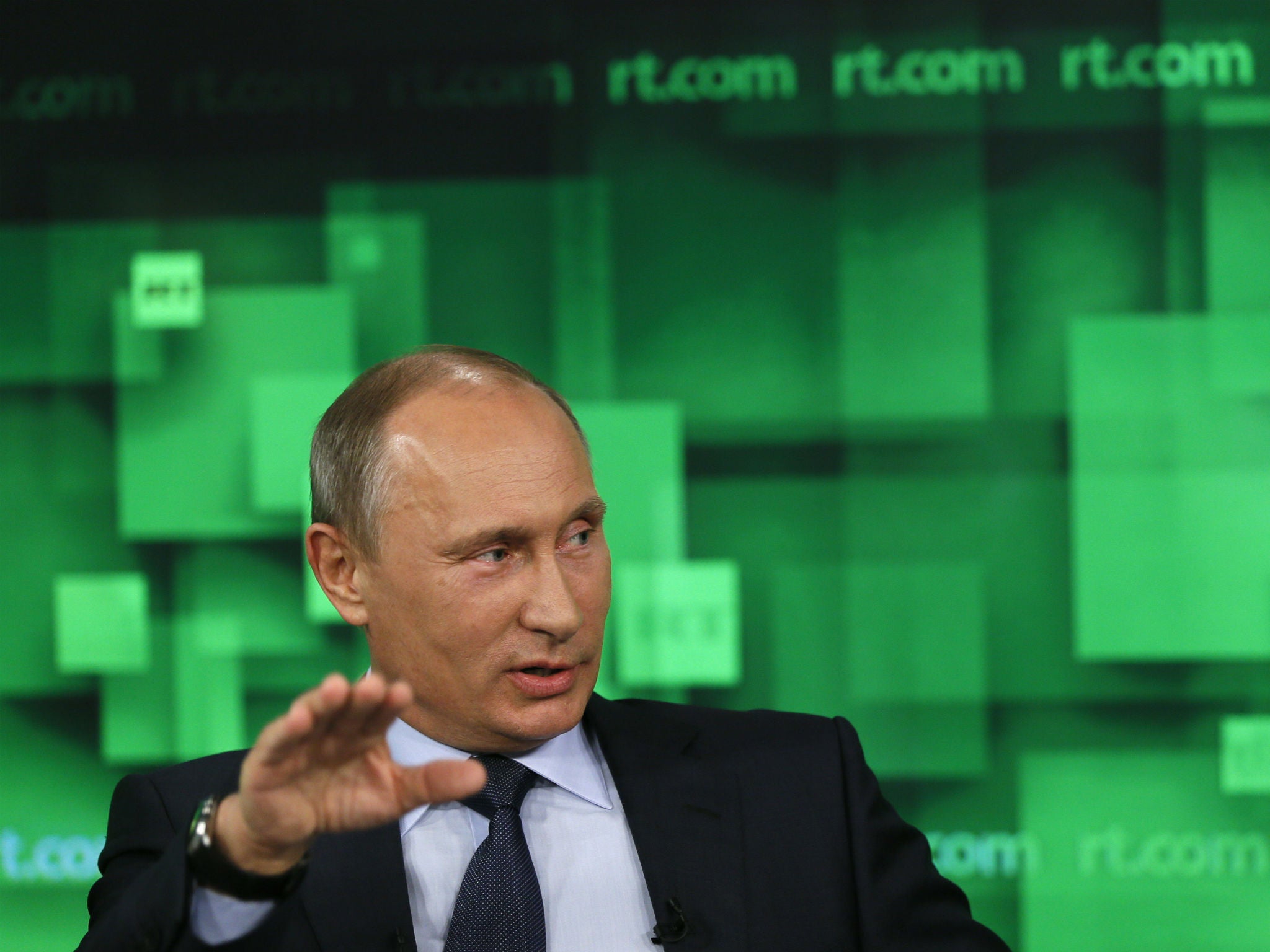Twitter bans adverts from Russia Today and Sputnik
RT blasts 'greatly-misleading' claims it sought to influence users during election

Your support helps us to tell the story
From reproductive rights to climate change to Big Tech, The Independent is on the ground when the story is developing. Whether it's investigating the financials of Elon Musk's pro-Trump PAC or producing our latest documentary, 'The A Word', which shines a light on the American women fighting for reproductive rights, we know how important it is to parse out the facts from the messaging.
At such a critical moment in US history, we need reporters on the ground. Your donation allows us to keep sending journalists to speak to both sides of the story.
The Independent is trusted by Americans across the entire political spectrum. And unlike many other quality news outlets, we choose not to lock Americans out of our reporting and analysis with paywalls. We believe quality journalism should be available to everyone, paid for by those who can afford it.
Your support makes all the difference.Twitter has banned advertisements from prominent Russian media outlets Russia Today (RT) and Sputnik, its latest step to tighten ad guidelines as Congress probes Russian election interference.
In jettisoning paid content from RT and Sputnik, Twitter cited American intelligence agencies’ conclusion that the two organizations were part of a sweeping effort directed by Russian President Vladimir Putin to undermine the 2016 presidential election. That analysis referred to RT as “The Kremlin’s principal international propaganda outlet” and deemed Sputnik a “government-funded outlet producing pro-Kremlin” content.
“This decision was based on the retrospective work we've been doing around the 2016 U.S. election and the U.S. intelligence community’s conclusion that both RT and Sputnik attempted to interfere with the election on behalf of the Russian government”, Twitter said in a blog post announcing the move, adding that “Russian efforts to interfere with and disrupt the 2016 Presidential election…is not something we want on Twitter”.
A post on RT hit back at Twitter, saying said RT “has never been involved in any illegal activity online” and has “never pursued an agenda of influencing the US election through any platforms, including Twitter” adding that RT had held “direct negotiations” with Twitter in 2016 to entice RT into a business deal by offering “a package of perks and bonuses”.
A Twitter representative declined to comment on private conversations with an advertiser.
The move also drew a rebuke from the Russian Foreign Ministry, with a spokeswoman chastising Twitter for taking an “aggressive step” and warning that a “response will naturally follow”.
“It is clear that the obstruction of the Russian media, including through the arsenal of intelligence services, shows a flagrant violation by the United States of America of both international and domestic legislation guaranteeing freedom of expression”, spokeswoman Maria Zakharova said in a Facebook post.
Under intense political pressure to show it was responding to Russia targeting the election, Twitter in September said it had found about 200 Russian-linked accounts - some of them related to the hundreds of fake accounts Facebook told Congress it uncovered - and had found RT spent about $274,000 on ads in 2016.
Those disclosures did little to mollify some members of Congress, with the top Democrat on the Senate Intelligence Committee blasting Twitter’s briefing as “deeply disappointing”.
But for RT they constituted a disingenuous attempt to undercut a client. The site’s response to being barred from advertising denounced Twitter’s earlier blog post as “absolutely groundless and greatly-misleading”, adding that “Only a fraction of the promoted content was related to US election coverage”.
While RT and Sputnik will still be allowed to use Twitter, the decision to prohibit advertisements from their accounts underscores the balancing act Twitter and other social media giants face as they scramble to respond to a post-election surge in scrutiny. Long accustomed to a light touch in the name of free speech, the companies are now on the spot to explain how they regulate paid content.
Earlier this week Twitter said it would start revealing who is paying for political ads, preempting a new bill that would for the first time impose political disclosure requirements on online ads. Representatives from Twitter, Google and Facebook have been summoned to testify before Congress next week about how their platforms facilitated the Russian effort - a development of keen interest to RT.
“We, of course, will be watching to see just how complete and accurate that testimony is in relation to RT”, the site’s post said.
While some members of Congress have been vocal about the need for new regulations to safeguard future elections from foreign interference, the Trump administration has been more skeptical.
“There’s a distinction between people trying to sway American elections and succeeding in swaying American elections”, deputy Attorney General Rod Rosenstein said in a radio interview this week. “American citizens are pretty savvy and when they decide who to vote for I don’t think they’re going to be influenced by ads posted by foreign governments”.
There is a long history of both Russia and Western countries seeking to promote their viewpoints in the others’ media. During the Cold War, institutions like Voice of America and Radio Liberty beamed content with a pro-Western tilt into the Soviet Union.
Subscribe to Independent Premium to bookmark this article
Want to bookmark your favourite articles and stories to read or reference later? Start your Independent Premium subscription today.
Join our commenting forum
Join thought-provoking conversations, follow other Independent readers and see their replies
Comments